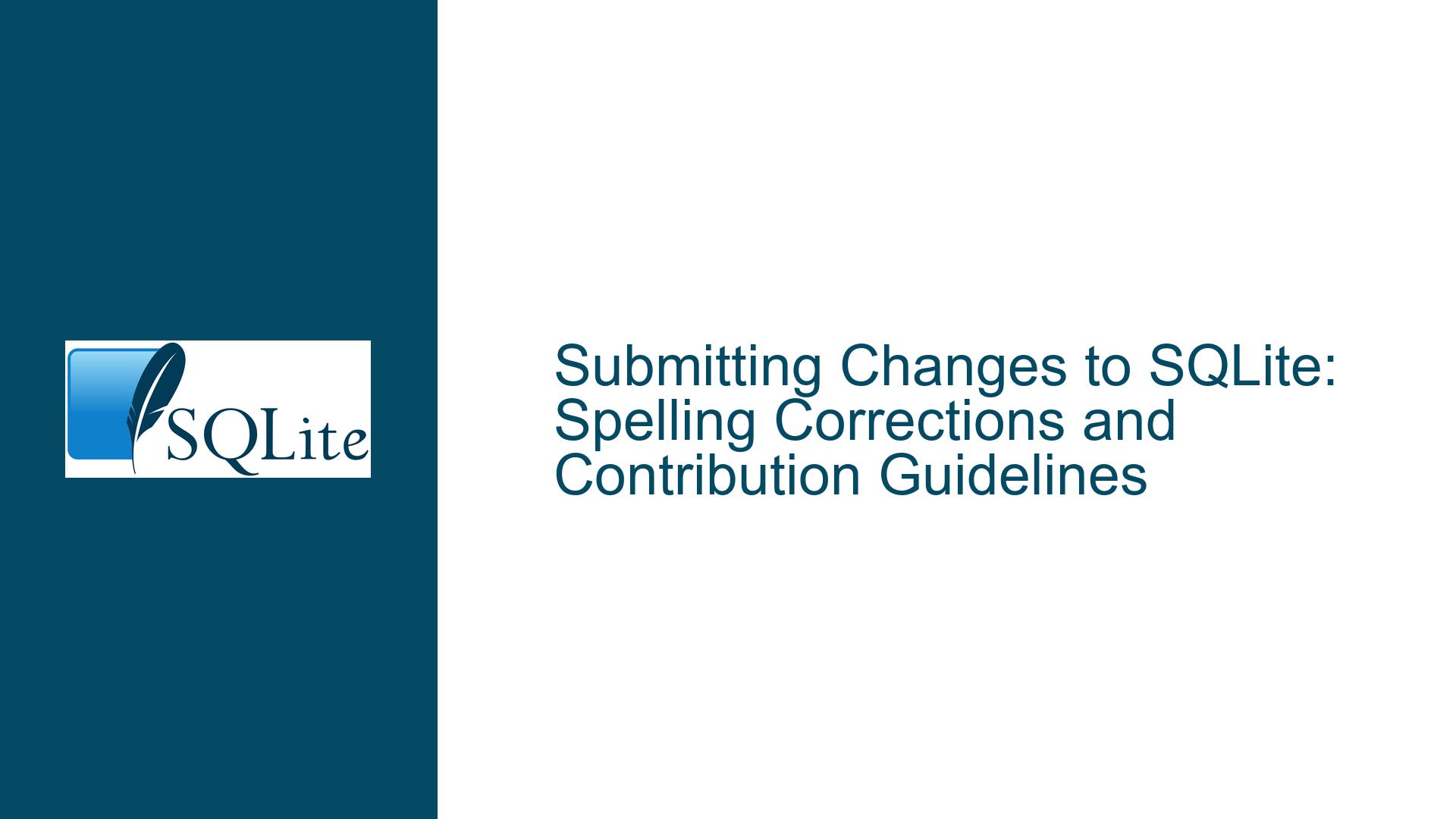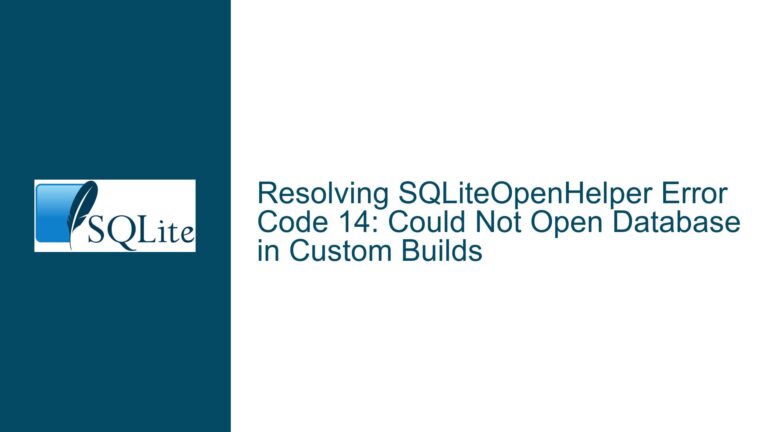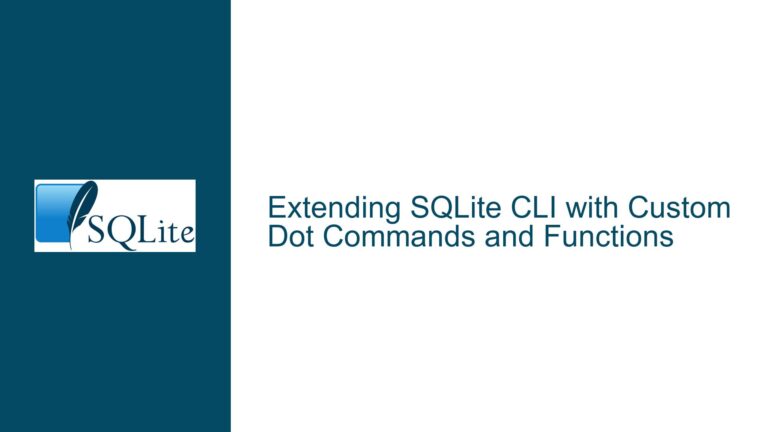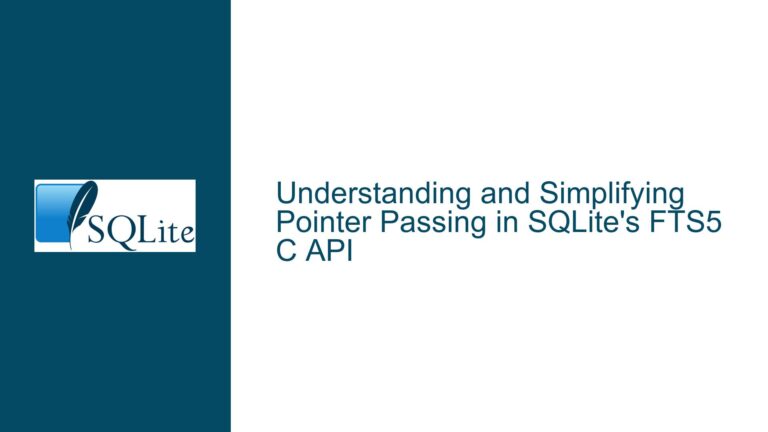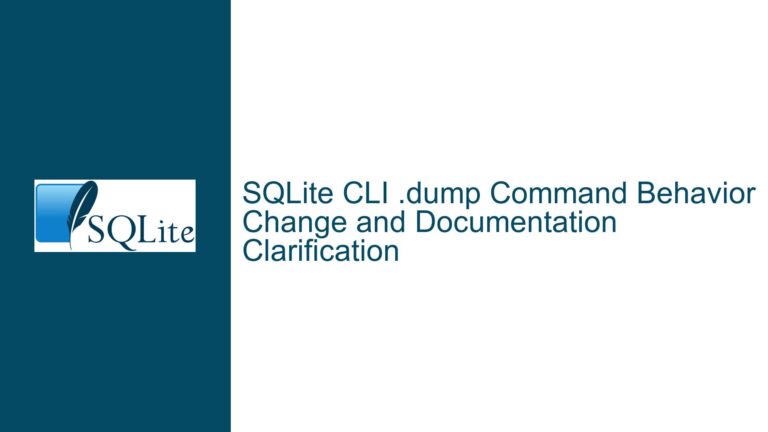Submitting Changes to SQLite: Spelling Corrections and Contribution Guidelines
Issue Overview: Submitting Spelling Corrections to SQLite
The core issue revolves around the process of submitting changes, specifically spelling corrections, to the SQLite project. SQLite, while open-source, operates under a unique contribution model that restricts direct commits to its repository to a select group of maintainers. This model is designed to maintain the integrity and stability of the codebase, ensuring that changes are carefully vetted and aligned with the project’s goals. The discussion highlights the challenges faced by an external contributor attempting to submit spelling corrections identified using an open-source tool called CodeSpell.
The contributor, Shaun Case, successfully built SQLite from source, made spelling corrections, and ran tests to validate the changes. However, the process of pushing these changes to the SQLite repository encountered a roadblock due to the project’s contribution policies. The contributor’s attempt to push changes using Fossil, the version control system used by SQLite, resulted in a login failure, indicating a lack of push access. This situation underscores the need for clarity on how external contributors can propose changes, especially for non-code modifications like spelling corrections.
The discussion also touches on the broader context of SQLite’s contribution guidelines, which are not as prominently documented as in other open-source projects. Contributors accustomed to platforms like GitHub, where a "Contributing" guide is standard, may find it challenging to navigate SQLite’s contribution process. The absence of a dedicated "Contributing" page on SQLite’s website adds to the confusion, as contributors must rely on indirect references, such as the copyright page, to understand the project’s policies.
Possible Causes: Understanding SQLite’s Contribution Model and Access Restrictions
The primary cause of the issue lies in SQLite’s contribution model, which is distinct from many other open-source projects. SQLite is open-source but not open-contribute, meaning that while the source code is freely available, only a select group of maintainers have the privilege to commit changes directly to the repository. This model is designed to ensure that all changes are thoroughly reviewed and aligned with the project’s objectives, minimizing the risk of introducing errors or inconsistencies.
The login failure experienced by Shaun Case when attempting to push changes is a direct consequence of this model. External contributors do not have push access to the SQLite repository, and their credentials, even if valid for the SQLite forum, do not grant them the necessary permissions to commit changes. This restriction is in place to maintain control over the repository and prevent unauthorized modifications.
Another contributing factor is the lack of a prominently documented contribution guide. While SQLite’s copyright page provides some information on the project’s policies, it does not explicitly outline the process for submitting changes. This lack of clarity can lead to confusion among contributors, especially those who are new to the project or accustomed to more permissive contribution models.
The nature of the changes being proposed also plays a role in the issue. Spelling corrections, while seemingly minor, can have implications for the project’s history and documentation. The SQLite maintainers prefer to avoid unnecessary churn in the change history, which can obscure more meaningful changes. As a result, they may be selective about accepting spelling corrections, particularly if they are submitted en masse.
Troubleshooting Steps, Solutions & Fixes: Navigating SQLite’s Contribution Process
To address the issue of submitting spelling corrections to SQLite, contributors should follow a structured approach that aligns with the project’s contribution model and policies. The following steps outline the recommended process:
Review SQLite’s Contribution Policies: Before attempting to submit any changes, contributors should thoroughly review SQLite’s copyright page and any other relevant documentation to understand the project’s policies. This includes understanding the restrictions on direct commits and the preferred methods for proposing changes.
Prepare the Changes: Contributors should prepare their changes in a way that is easy for the maintainers to review and integrate. For spelling corrections, this may involve creating a patch file that highlights the specific changes made. Tools like CodeSpell can be used to identify and correct spelling errors, but contributors should ensure that the changes are relevant and do not introduce unnecessary churn.
Submit the Changes via the Forum: Since direct commits are not permitted, contributors should submit their changes through the SQLite forum. This can be done by posting a detailed description of the changes, along with any relevant files or patches. Contributors should be prepared to explain the rationale behind the changes and how they align with the project’s goals.
Provide Context and Justification: When submitting changes, contributors should provide context and justification for their proposals. This includes explaining why the changes are necessary, how they were identified, and any potential impact on the project. For spelling corrections, this may involve highlighting specific instances where the corrections improve readability or accuracy.
Be Patient and Open to Feedback: The SQLite maintainers may take time to review and respond to proposed changes. Contributors should be patient and open to feedback, as the maintainers may request additional information or suggest alternative approaches. It is important to engage in a constructive dialogue and be willing to revise the changes based on the maintainers’ input.
Consider Alternative Contribution Methods: If the changes are not accepted, contributors should consider alternative methods of contributing to the project. This may include participating in discussions, reporting issues, or contributing to related projects that are more open to external contributions.
Document the Process: To help other contributors navigate the process, it is beneficial to document the steps taken and any lessons learned. This can be shared on the forum or in a public repository, providing a reference for future contributors.
By following these steps, contributors can navigate SQLite’s contribution process more effectively and increase the likelihood of their changes being accepted. It is important to approach the process with a clear understanding of the project’s policies and a willingness to collaborate with the maintainers.
In conclusion, submitting changes to SQLite, particularly spelling corrections, requires a nuanced understanding of the project’s contribution model and a structured approach to proposing changes. By adhering to the outlined steps and engaging constructively with the maintainers, contributors can contribute to the project while respecting its unique policies and goals.
